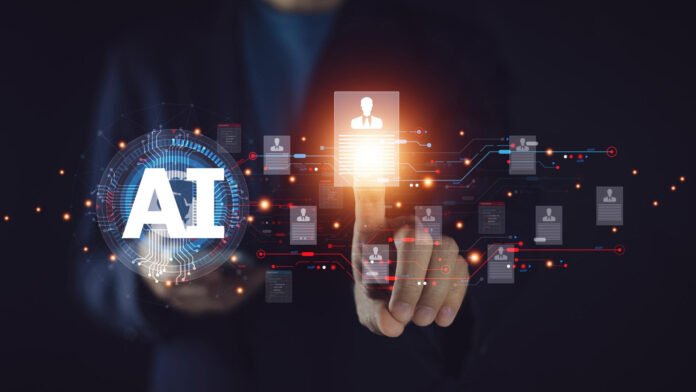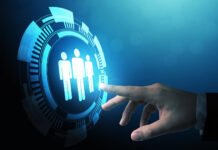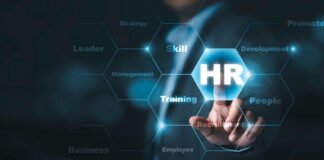Old HR systems do not work in a world that is as speedy as algorithms. The current dynamic of the workforce, hybrid teams, shortened skill cycles, and global liquid talent markets requires an elevated, more intelligent HR infrastructure that is more responsive and quicker to deploy. Artificial Intelligence is no longer a bolt-on feature in human capital management. It’s the new backbone.
The question isn’t whether AI will reshape HR. It already is. The question is: Are leadership teams ready to govern and scale AI in a way that transforms—not fragments—talent development?
Table of Contents
1. AI Becomes the Strategic Co-Pilot in HR
2. Measuring What Matters in the Talent Economy
3. Bias in, Bias Out
4. Are We Optimizing Potential or Overlooking It?
5. The Global, Agile, Intelligent Workforce Takes Shape
6. Talent Culture Must Evolve With the Tech
7. From Reactive HR to AI-Native Talent Architecture
Final Thought
1. AI Becomes the Strategic Co-Pilot in HR
By 2025, progressive business establishments will consider AI in HR as their strategic associate, not a cost-cutting instrument. Machine learning is already being used to scan millions of candidates in seconds, and suggest internal mobility opportunities before managers see it, and even identify candidates that are likely to become top performers based upon subtle behavioral clues.
As an example, AI-powered video interviews and gamified assessments used by Unilever created a smooth hiring experience, eliminated bias, and increased the quality of hires, in addition to a 75% reduction in hiring time.
This isn’t automation for automation’s sake. This is transforming talent development with AI to gain a true competitive advantage.
2. Measuring What Matters in the Talent Economy
Talent development has traditionally been hard to quantify. But that’s changing. AI now tracks learning velocity, content engagement, and skill mastery at scale, making it possible to draw a direct line between development investments and performance gains.
According to Deloitte’s 2025 Global Human Capital Trends Report, organizations using Artificial Intelligence in talent development report a 32% higher internal mobility rate and 27% shorter time-to-productivity for new hires. AI doesn’t just streamline—it clarifies the ROI of L&D in real time.
This transforms the CHRO from a compliance officer into a Chief Talent Intelligence Officer—a leader fluent in both human potential and data science.
3. Bias in, Bias Out
However, the AI is not flawless. It uses historical information, that is, it is a possibility that it reinforces the biases that exist unless closely overseen. In 2023, an AI system deployed by a large technology company was unceremoniously decommissioned when engineers with the company found it to habitually demote resumes with any hint of maternity leave or career gaps.
HR leaders should take the initiative because regulators are moving in to protect the specific community of people (in the EU or North America, notably). Clear algorithms, training data variety, and human control are required. Transforming HR using Artificial Intelligence is beyond investment in technology. It requires moral leadership.
4. Are We Optimizing Potential or Overlooking It?
C-suite executives often ask: Can algorithms identify emotional intelligence or just score resume keywords? It’s a fair concern. AI is excellent at optimizing for patterns, but it struggles with nuance.
That’s why the best HR functions in 2025 adopt a hybrid intelligence model. AI handles the pattern recognition, while human leaders evaluate creativity, adaptability, and values alignment. Talent development becomes less about scale and more about precision.
5. The Global, Agile, Intelligent Workforce Takes Shape
With AI, HR becomes borderless. Talents need not be within range of commuting distance of the headquarters anymore. Artificial Intelligence in HR Tools is now multilingual, manages local compliance complexities, and continuously tracks engagement in real-time, providing a cohesive experience to distributed workforces.
This is particularly critical because organizations are transforming static org charts into skill marketplaces that are dynamic in the sense that operations are as fluid as business models. Through its research, Gartner projects that by the year 2026, 60 percent of large companies will use AI-powered internal talent marketplaces to achieve the right expertise.
6. Talent Culture Must Evolve With the Tech
That is because culture is the muffled motive power of talent performance, and it has to change every time a new algorithm is implemented. Machine learning models are now capable of detecting the possible onset of burnout, detachment, or even personality clashes through communication reports and sentiment analysis.
The problem, however, is that AI cannot be a remedy to a faulty culture. It can merely be used to point out where things are going awry. The shift towards AI-enhanced talent development needs to be combined with the investment of the companies into the spheres of psychological safety, inclusion, and trust.
7. From Reactive HR to AI-Native Talent Architecture
The future of HR isn’t about better automation—it’s about re-architecting talent systems with AI at the core. That means:
-
- Designing learning journeys with adaptive AI tutors
- Creating career paths shaped by real-time performance signals
- Enabling leaders to manage by insight, not instinct
In this new paradigm, Artificial Intelligence doesn’t replace human judgment—it augments it with clarity, consistency, and speed.
The opportunity is clear. The risk of standing still is even clearer.
Final Thought
If talent is the engine of business growth, then AI is its fuel-injection system. But like any powerful tool, how it’s used—and who governs it—will determine whether it accelerates progress or drives inequality.
C-suite leaders face a strategic inflection point. Will they simply digitize the old HR playbook? Or will they embrace AI-native, intelligence-led models that truly transform talent development?
In the race for talent, the winners won’t just be the most automated—they’ll be the most intelligent, both in technology and in leadership.
Explore Hrtech Articles for the latest Tech Trends in Human Resources Technology












